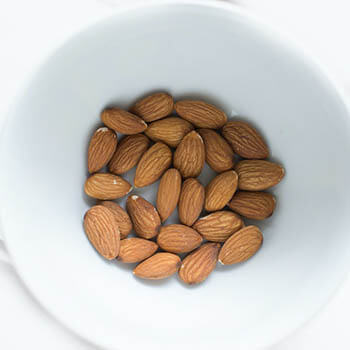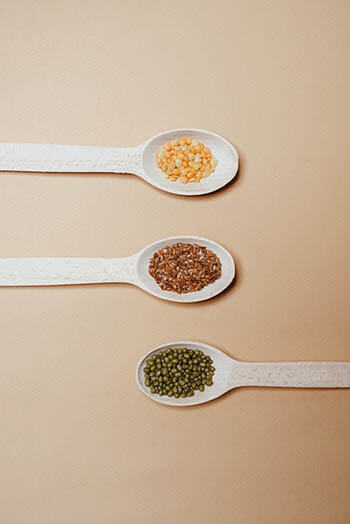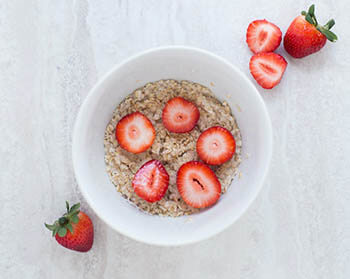High blood sugar is an insidious condition. Sugary foods, type 2 diabetes, or certain lifestyle choices can cause our blood sugar levels to rise. This condition is called hyperglycemia. Over time, high blood sugar levels can permanently damage parts of the body. While the occasional rise in blood sugar levels isn't too much to worry about, it's important to monitor your blood sugar. Persistent high levels should be dealt with as soon as possible.
Monitoring blood sugar levels might seem like a problem only for people with diabetes. However, that isn't true. Persistent high blood sugar will damage anyone's body, and many people could be suffering from prediabetes without even realizing it. Taking control of your blood sugar levels now can lower your risk of developing type 2 diabetes later on.
Fortunately, high blood sugar levels don't always entail an urgent trip to the doctor. In fact, you can lower blood sugar levels yourself, at home.
But how can you tell whether your blood glucose levels are high? More importantly, what can you do to fix it?
Symptoms of High Blood Sugar Levels
People with diabetes should put in extra effort to lower their blood sugar levels. Some signs that your blood glucose is too high include:
- Dry mouth
- Increased thirst
- Needing to urinate more often
- Tiredness
- Weight loss
- A fruity scent on the breath
- Stomach pain or cramps
- Sickness and/or nausea
- Recurring infections
If you think you're suffering from high blood sugar levels, take immediate steps. If you don't see any improvement, you could visit a doctor to create an action plan together.
Managing Blood Sugar Levels Naturally: Lifestyle Changes
Managing blood glucose levels requires more than just a crash-course diet. Implementing certain lifestyle changes can help you to keep your blood sugar levels manageable in the long term. You may want to apply some, or all, of the suggestions below.
1. Managing Carbs

Carbohydrates are a good part of a healthy diet. When we eat carbs, they're broken down into sugars, by insulin produced in our bodies. However, a health problem that inhibits the production of insulin or its function (such as type 2 diabetes) can get in the way of dealing with the excess sugar. Eating too many carbs can also result in too much sugar in our bodies.
Any diet needs at least some carbohydrates. However, we can easily eat more carbs daily than we actually need. Counting carbs in our diet isn't fun, but it can go a long way to managing blood sugar.
Foods like bread and potatoes are high in carbohydrates. While these foods have their place in a healthy diet, you might want to consider cutting down on high-carb foods and introducing more low-carb alternatives. Creating daily or weekly meal plans can help you analyze just how many carbs you're eating, and how many of them are necessary.
2. Regular Exercise

Exercise is good for our bodies in many, many ways. It improves alertness, boosts heart health, keeps us physically fit, and releases serotonin in our brains. However, exercise also improves insulin sensitivity.
Greater insulin sensitivity means that your cells can better absorb and use the excess sugar in your body, thus can help lower blood sugar naturally. Insulin resistance, on the other hand, is what can cause high blood glucose in the first place.
If you're not used to a high level of exercise, start slowly and build up gradually. A brisk walk, hiking, or even dancing can help to get your blood pumping!
3. Proper Hydration

Whether you're suffering from high blood sugar levels or not, it's crucial to stay properly hydrated. Drinking plenty of water helps to flush out toxins and excess sugars from the body, via the kidneys. It also rehydrates the blood, and aids digestion.
However, be warned - don't use sugary beverages to hydrate. Sodas or some fruit juices contain high levels of sugar. Alcoholic beverages such as beers also contain sugar. Instead of refreshing your body and keeping you hydrated, sugary drinks can actually raise your glucose levels. Over time, a diet of sodas and sugary fruit juices can contribute to type 2 diabetes.
4. Eating a High-Fiber Diet
Blood sugar levels can rise steeply right after we eat a meal. Fiber in our diet can help to slow the absorption of sugars and the digestion of carbs. Why is this helpful?
A slower breakdown process allows the body to absorb sugars gradually, giving your metabolism time to work. A high-fiber diet also makes you feel fuller for longer, reducing the chance of snacking later on. This prevents you from unintentionally overloading your body with carbs and sugars, and can help to maintain a healthy body weight.
Fiber can be found in fruits, vegetables, legumes, and more.
Check out the glycemic index of your favorite foods if you need any extra guidance. Glycemic index gives you a clearer idea of how much of an impact certain foods will have on your blood sugar.
5. Monitor Stress Levels
Our lives tend to be more and more stressful nowadays, packed with activities and responsibilities. However, stress can cause blood sugar levels to rise. This is because our bodies release certain hormones when we're under duress, like cortisol. These hormones inhibit proper blood glucose management, leading to sharply rising glucose levels.
Keeping stress levels low is much harder than it appears. Exercise, a healthy diet, and taking time to rest and relax can all help to keep your stress levels low. If you're struggling to manage stress, try to look at your lifestyle to identify possible causes and triggers. Avoiding stress is good for your health.
6. Eat a Balanced Diet
Foods with plenty of fiber, protein, and other vitamins and minerals are good for maintaining balanced blood glucose.
People with diabetes should beware of eating too much fruit, along with fruit juices. These products contain natural sugars, and some fruit juices are very high in sugars.
Junk food or processed foods can be particularly high in sugar. Your body tries to absorb all of this excess sugar quickly, causing your blood glucose levels to rise.
7. Focus on Sleep Quality

Would you think that sleep can affect your blood sugar levels? Well, it certainly can. In fact, the quality - and quantity - of your sleep will affect more areas of your health and wellbeing. Poor sleep can lead to higher blood glucose levels, and can decrease insulin sensitivity.
A lack of sleep can lead to our bodies producing too much of certain hormones such as cortisol. Too much of this hormone can negatively impact blood sugar.
Poor sleep can also cause appetite fluctuations and cravings the next day. You might find yourself hungrier than usual, or craving some sugary snack or junk food. Giving in to these cravings is all too easy, and can lead to a dangerous spike in your blood sugar levels.
8. Weight Monitoring

Being overweight can put a person at a greater risk of certain diseases, including type 2 diabetes. This can bring a whole host of other problems, including insulin resistance. Insulin resistance means that the body struggles to absorb sugar, resulting in rocketing blood sugar.
Eating a healthy diet and exercising regularly can go a long way to maintaining a healthy weight. If you're having issues with losing weight, why not meet up with a doctor or a nutritionist to discuss an action plan? Remember, healthy weight loss takes time. In fact, the recommended sustainable weight loss rate is only 1-3 pounds a week. Taking action may take time, but losing weight too quickly can be every bit as unhealthy as gaining it.

Foods Which Lower Blood Sugar
What we eat has a direct impact on our blood sugar levels. Certain foods are better than most for blood sugar lowering. These foods can help to improve insulin sensitivity, providing us with the vitamins, minerals, and energy that we need without overloading our bodies with junk and toxins.
Let's take a look at some foods which can be especially helpful to regulate blood sugar levels.
1. Dark Green, Leafy Vegetables

This includes spinach, kale (known as a superfood, for good reason) and broccoli, all of which are excellent diet additions. This is because broccoli in particular contains sulforaphane, a product that has blood sugar-reducing properties. Sulforaphane can even help to enhance insulin sensitivity, enhancing sugar absorption in the body.
2. Nuts

For most of us, nuts and nut butter are already a delicious snack to enjoy between meals. Nuts like peanuts and almonds can help to reduce blood sugar levels, especially when eaten between meals. Nuts are filling, and can help discourage further snacking. A low carb diet can lead to feelings of hunger and particular cravings, making a handful of nuts the perfect snack.
3. Pumpkin
Pumpkin and pumpkin seeds are a great source of fiber, as well as being packed with antioxidants. In fact, pumpkin is used as a traditional diabetic remedy in some cultures. Pumpkin contains a carb known as polysaccharides. This carbohydrate is known for its power to regulate blood sugar in the body.
4. Beans and Lentils

Nutrients such as magnesium, protein, and fiber all work to reduce blood sugar levels. Fortunately, beans and lentils are rich in these nutrients. For instance, adding lentils or chickpeas to a meal can significantly reduce post-meal blood sugar.
The wide variety of beans and lentils available mean that it's easy to find something to work into a simple meal.
5. Seafood

Seafood is full of proteins, nutrients, and antioxidants. As part of a healthy, balanced diet, fatty fish and seafood can also help to balance blood sugar levels. Fatty fish, when consumed in moderation, may even be more beneficial to blood sugar than lean fish. Fatty fish includes salmon and sardines.
6. Oats

Soluble fiber is crucial to balanced blood sugar levels. Soluble fiber is found in oats and oat bran, meaning that your breakfast porridge could be the healthiest start possible to your day!
7. Citrus

Some fruits, such as watermelon or pineapple, can actually raise blood sugar levels, due to their natural sugar content. Citrus fruits like oranges and grapefruit contain plenty of fiber, as well as naringenin. This is a plant compound known for its anti-diabetic properties. Regularly eating citrus fruits can help to reduce your risk of developing type 2 diabetes, as well as improving insulin sensitivity.
8. Eggs

Last, but certainly not least, we have the mighty egg. Eggs are a powerful addition to any diet, providing protein, vitamins, minerals, and antioxidants. Tasty and versatile, there's a lot you can do with an egg!
Eggs may also help to reduce blood glucose levels. Some studies suggest that eating eggs could help to lower a person's chance of developing type 2 diabetes in later life.
What to Watch Out For
Implementing life and dietary changes can be an effective, long-term way of keeping rampant blood sugar levels under control. However, for people already suffering from type 2 diabetes or some similar health issue, care is needed.
Strict diets or significant lifestyle changes can seriously impact a person's blood sugar levels. Blood sugar control is important, but lowering blood sugar levels too quickly or too much can be almost as harmful.

For instance, fruit and vegetables seem to be a healthy choice. That's certainly correct, but too much fruit or fruit juice can cause a diabetic's blood glucose levels to rise. This is because some fruits, such as pineapple or watermelon, are very high in sugar. Eating too much of these fruits can actually be bad for you! Also, many commercial fruit juices contain added sugar. Homemade smoothies can also have a much higher sugar content than the individual fruit.
That's right - throwing a handful of fruit in a blender could actually be less healthy than eating the fruit raw. Smoothies also remove nutritious fiber from the fruit. While this doesn't mean that you can't have a delicious, homemade smoothie, it's important to keep an eye on all sources of sugar that you take in during the day.
Controlling blood glucose involves more than just a crash-course diet, or cutting out cake. Keeping blood sugar under control is often a long-term project. Don't fall into the trap of looking for "quick fix" solutions. Lifestyle changes and eating plans that you can live with are going to have a more permanent effect on your blood sugar, as well as your overall health.
Should I Worry About My Blood Glucose Levels?
Many people experience fluctuations in their blood glucose levels. Blood sugar does vary. For example, your glucose levels will be higher right after a meal. If you're concerned about rising blood sugar levels, consult a doctor. They will be able to check your glucose levels and give advice for improving your health and wellness, if necessary. Perhaps some small tweaks to your diet are all that's needed, or maybe a more robust action plan could be arranged.
You can easily monitor your blood glucose levels at home. Home testing kits are available, and a weekly test can show how much progress you've made. These tests can help you see immediately whether your dietary or lifestyle changes are working. However, do remember that these things take time.
Home blood glucose testing kits are highly recommended for diabetics. However you choose to monitor your blood sugar, it's important to keep an eye on your overall health, not just one aspect of it.

